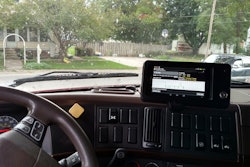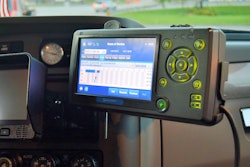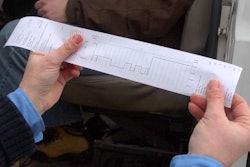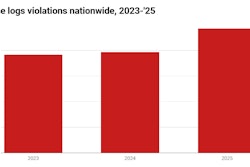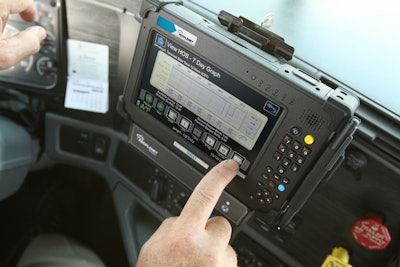
Also this week, the court granted the Owner-Operator Independent Drivers Association extra time to file its next response brief in the lawsuit. OOIDA filed the original lawsuit against the ELD mandate in March, arguing the rule violates truckers’ 4th Amendment rights and will not make highways safer. OOIDA filed the suit hoping the court will strike down the mandate prior to its December 2017 effective date.
The American Trucking Associations, who’s long supported a mandate to require ELDs, filed an amicus brief June 22 with the 7th Circuit Court of Appeals, the court overseeing the ELD litigation.
ATA in its brief argues the ELD rule meets the standards set by Congress for such a rule and will have wide-ranging benefits in the industry, including — and most importantly, ATA says — broader compliance with hours of service limits set by the U.S. DOT.
ATA cites proprietary research it says backs up its claims, saying drivers who use ELDs have “a 53 percent lower driving-related HOS violation risk than non-equipped trucks and 49 percent lower non-driving-related HOS violation risk than non-equipped trucks.” The same study cited there also revealed lower crash risk among trucks using ELDs, the association says in its brief.

In the filing, ATA says OOIDA’s fears of regulators and carriers using the devices to track drivers in real-time is an “illogical extreme.” Furthermore, the rule takes measures to prevent such a scenario, ATA argues.
The same day ATA filed its brief, a separate brief was filed by the Trucking Alliance (fully known as the Trucking Alliance for Driver Safety and Security) and the Advocates for Auto and Highway Safety.
The two groups make similar points as ATA: electronic logging devices improve hours compliance, level the playing field among trucking companies and generally promote safety.
Like ATA, the Alliance argues the mandate stands up to the statutes set by Congress and sets appropriate safeguards against trucker harassment, the issue that derailed the DOT’s 2010-published rule to mandate electronic logging systems. “While some may be reluctant to adopt ELD technology, that reluctance should not thwart the collective and broadly-shared interest in a modern, safe and efficient transportation system,” the Alliance writes in its filing.
The briefs filed by ATA and the Alliance do not signal an ongoing participation in the lawsuit. They’re simply amici curiae briefs — filings meant to offer support to FMCSA and the other defendants in the case.
OOIDA has until June 30 to file its response to the arguments presented last week by FMCSA and this week by ATA and the Alliance.
FMCSA in a brief filed last week also defended the rule and its merits. Using ELDs to track hours of service should violate drivers’ privacy no more than paper logs, FMCSA argues. Any further intrusions are warranted anyway, FMCSA argued, as trucking is a highly regulated industry and has a long history of “government supervision,” the agency says.


